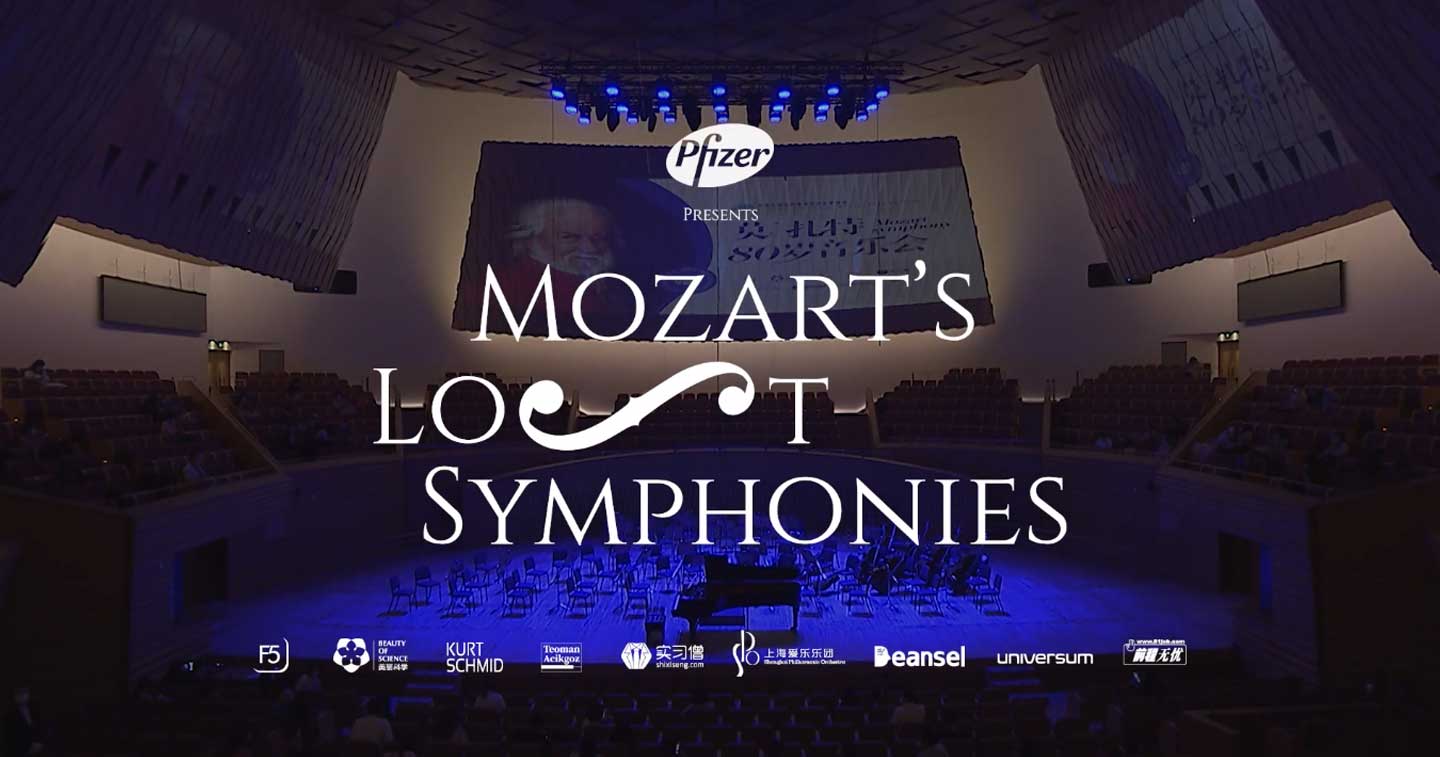CHINA – What started as a simple brief for an employee recruitment campaign, resulted in a revolutionary musical experience that fused technology, purpose, and art. Pfizer, the world’s largest pharmaceutical company, wanted to attract the most brilliant minds that could come up with solutions for the fight against the 2020 global pandemic. F5 Shanghai helped them attract hundreds of talents from top universities and companies through their campaign, Mozart’s Lost Symphonies. The campaign latched onto the insight of how when you save lives, you preserve possibilities; you are able to prolong not just a person’s life, but also their possible works, contributions, and how they would have affected the world.
Pfizer and F5 Shanghai looked into the life of Mozart, a musical maestro who died from rheumatic fever when he was only 35 years old, and asked what else he could have produced if he were able to live a full life.
Science and AI were used to create possible masterpieces from Mozart.
Pfizer also realized that the world’s public health and biomedicine fields needed not just a large amount of capital investment, but also more fresh blood. So, a fresh, modern, and innovative experience was the only way to grab the youth’s attention.
Resurrecting Mozart with AI technology represents the true mission of young people who choose the pharmaceutical industry: to allow longer, healthier lives, so that everyone can lead full lives that contribute greatly to society.
A groundbreaking musical festival
The orchestra was held at Shanghai Symphony Orchestra Concert Hall, located at 1380 Fuxing Middle Road, Shanghai, it is one of the best concert halls in the world, led by world-class masters, Isozaki Shin and Toyota Yasuhisa. Mozart’s Lost Symphonies were performed by the Shanghai Philharmonic Orchestra, conducted by Zhao Xiaoou, who is the current Associate Professor of Conducting at the Shanghai Conservatory of Music. Xiaoou studied under conductor David Zinman and Musical Director of the National Symphony Orchestra, Leonard Slatkin.
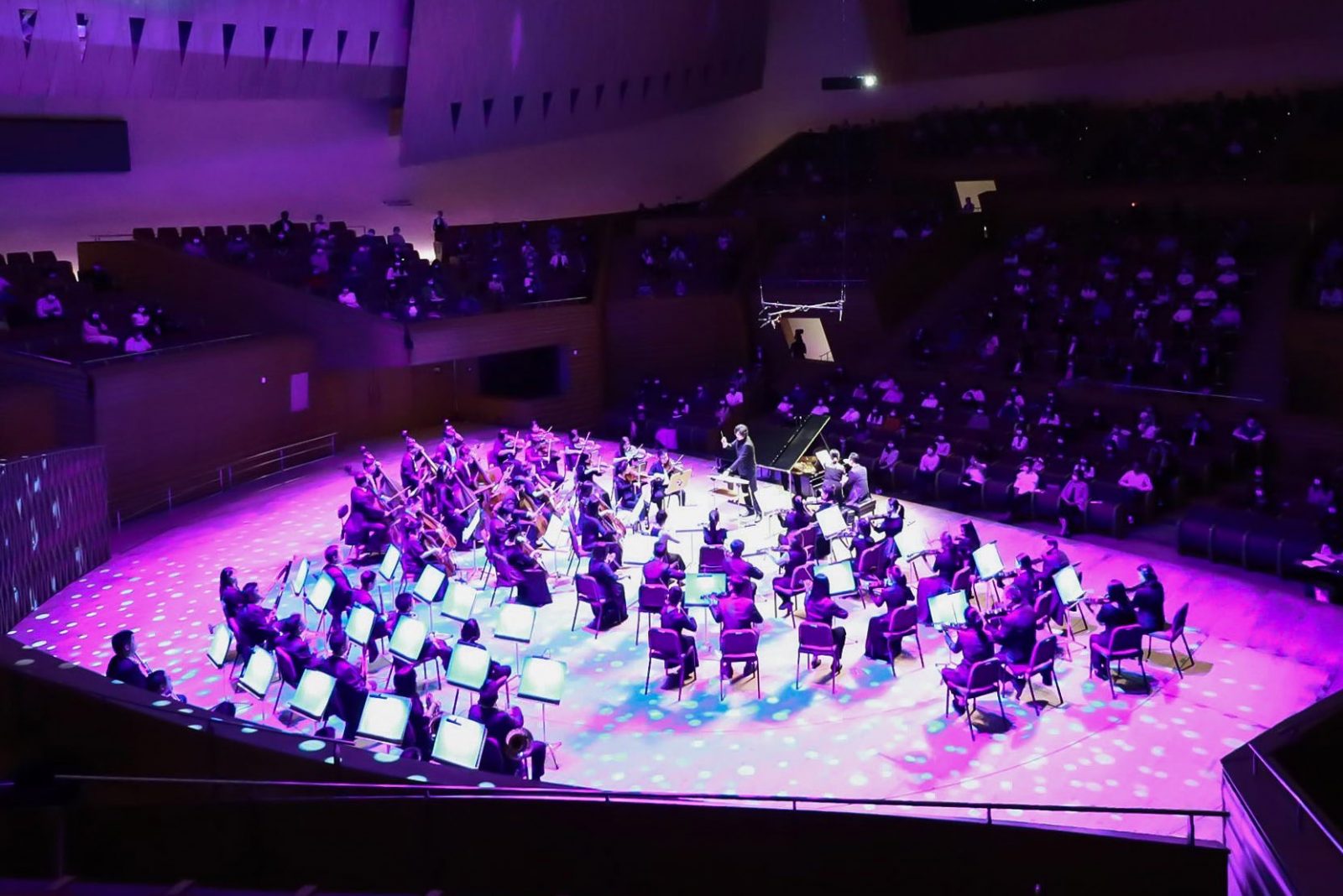
The pieces were also performed by Ge Hao, who studied at the Cologne Conservatory of Music in Germany. Hao has also held numerous solo recitals in the Netherlands, Spain, Argentina, and Germany.
During the live performance of Mozart’s Lost Symphonies, photomicrography of chemical reactions were projected on the concert hall’s three huge screens. This provided the audience with an unparalleled audiovisual treat and paid tribute to drug research and development workers.
Fusing new technology and imagination
F5 Shanghai used Google’s deep neural network open AI technology to create the symphonies. The first step was to feed the network all of Mozart’s work and Mozart-like pieces until it was able to learn his style; the second step was to predict and generate three brand new piano repertoires based on the characteristics he could have had in his 40s, 60s, and 80s and on the musical genres that were popular during those times; the third step, was to turn the piano pieces into full concertos and symphonies by famous musicians.
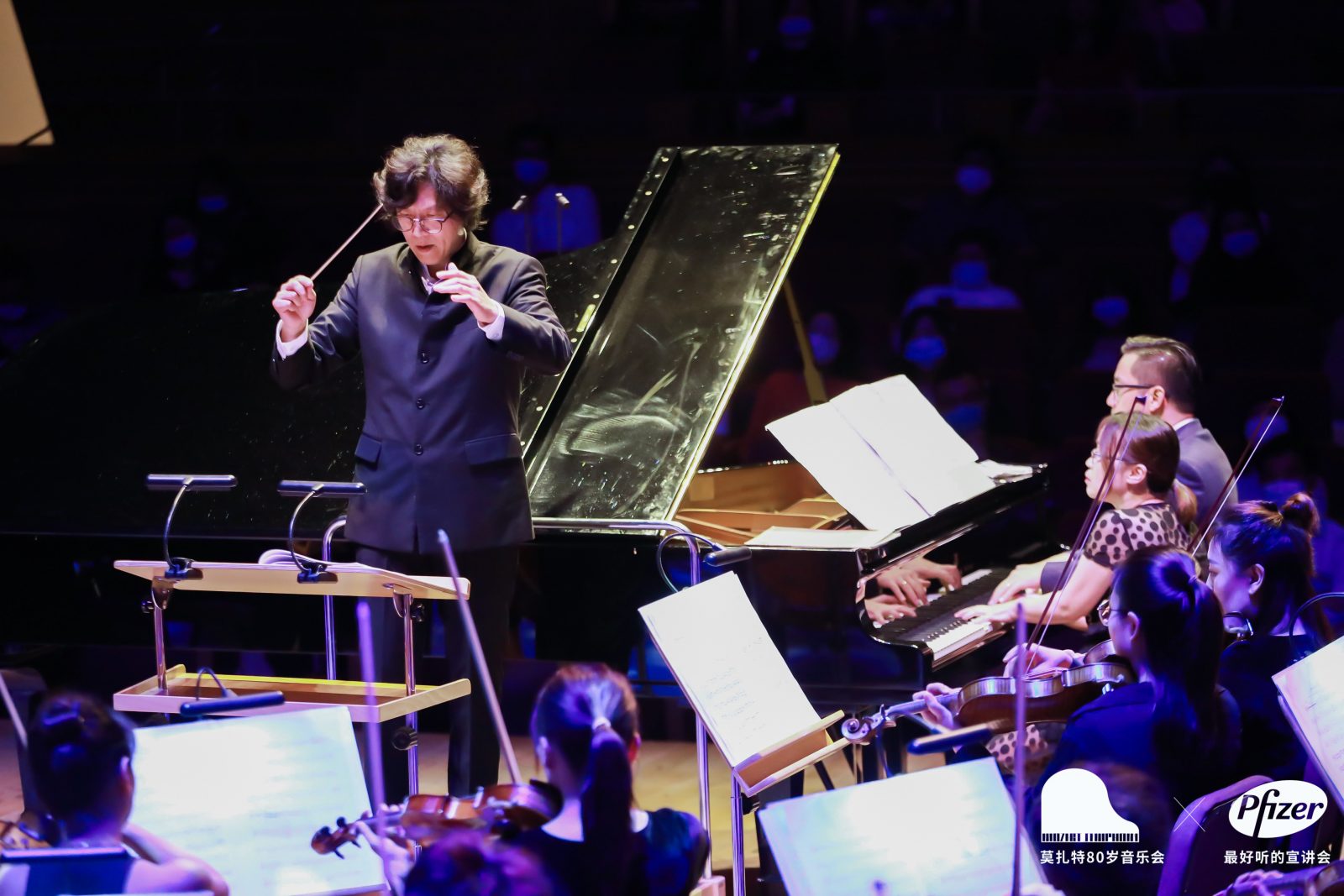
The three pieces have their own distinct style and sound:
- Rhine Piano Sonata
A 40-year-old Mozart would have recalled what he would’ve seen and heard during his attendance at Leopold II’s coronation. The melody is beautiful, bright, lively, and full of luster. - Freedom and Destiny Piano Ensemble
In 1816, Mozart would have been 60 years old, and Beethoven, 46, would’ve knocked on his door. Mozart would’ve understood that Beethoven was suffering from ear problems, and so would have created this piece to let Beethoven feel freedom and hope through music. - Apollo Symphony
In 1836, an 80-year-old Mozart would have still had strong creative enthusiasm. He would have composed a symphony which complemented the ancient Greek mythology of Apollo, the god of light and music, who rode a carriage to bring light to the world.
F5 Shanghai opens a global co-creation model
It is not enough to have a good idea. The challenge is how to implement it. The initial execution F5 Shanghai presented to Pfizer was to use AI to generate piano pieces an 80- year old Mozart could have composed, and then to have an automatic piano play them in a school auditorium to attract students. But after a few rounds of internal discussions, the team decided that the execution could be pushed further — it had to be world-class to be able to attract the best medical practitioners from across the globe, and had to be a proper way to pay tribute to the greatest musician of mankind.
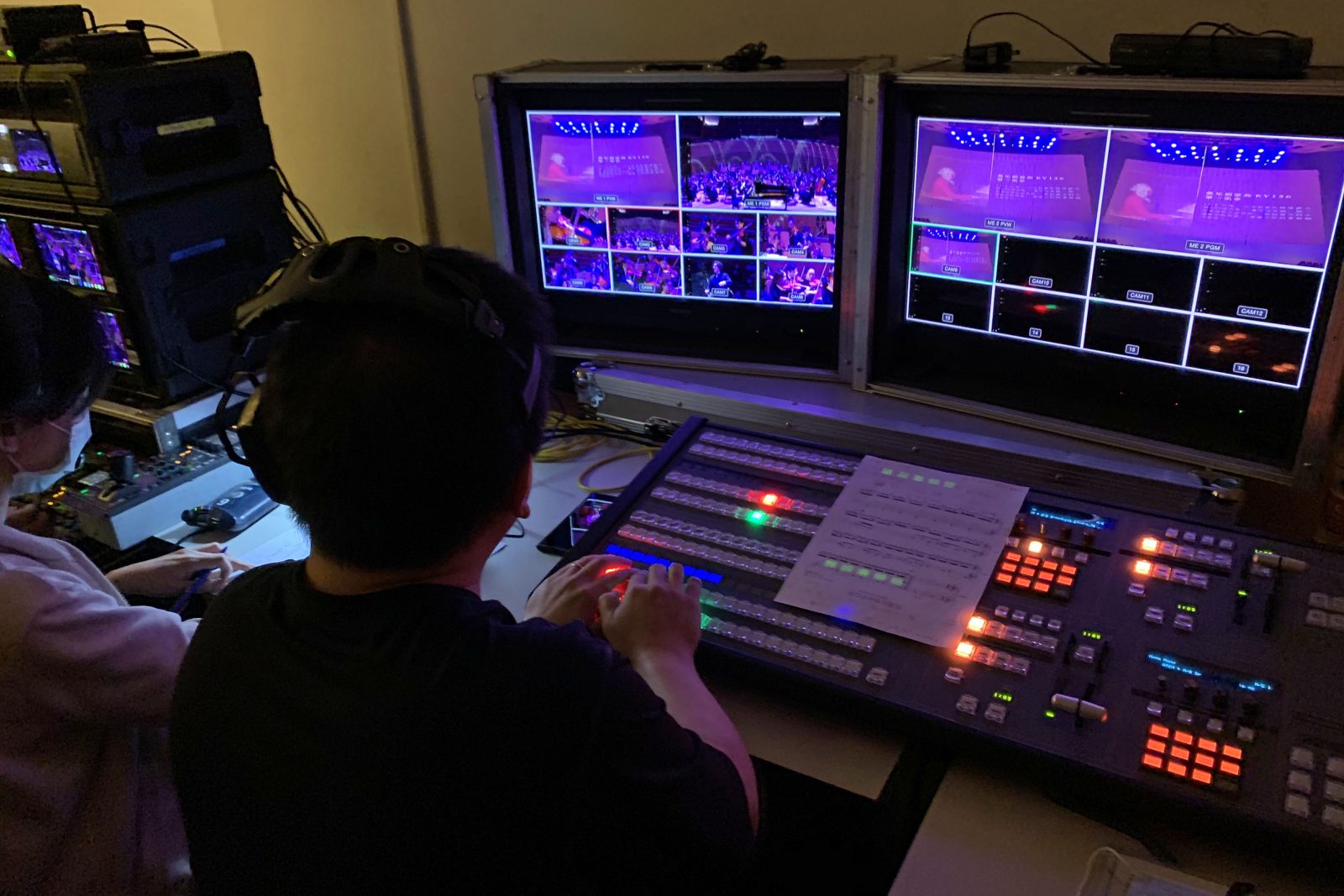
Musical score was the top priority, but there were very few people who could work with technology and classical music. F5 Shanghai reached out to musicians and technologists from around the world to help create the Lost Symphonies.
Dutch multimedia artist, Teoman Salih Açıkgöz, immediately signed on to be the technical consultant of the project and assisted the team in generating piano pieces using Google AI. The scores took more than two weeks to develop.
After developing the piano scores, F5 Shanghai needed to find an expert who could transform them into symphonies that full orchestras could perform. Mozart is Austrian, so F5 Shanghai looked for musicians who shared his musical heritage. The team successfully contacted Professor Kurt Schmid, a famous Austrian musician and Zheng Renqing, a well-known music professor.
Beauty of Science, a scientific visual effects development agency, provided the visuals featured during the concert. Its founder, Liang Yan, has a PhD from the University of Minnesota, and in 2012, was a scientific animator who participated in the development of Apple’s revolutionary digital textbook, “EO Wilson’s Life on Earth”.
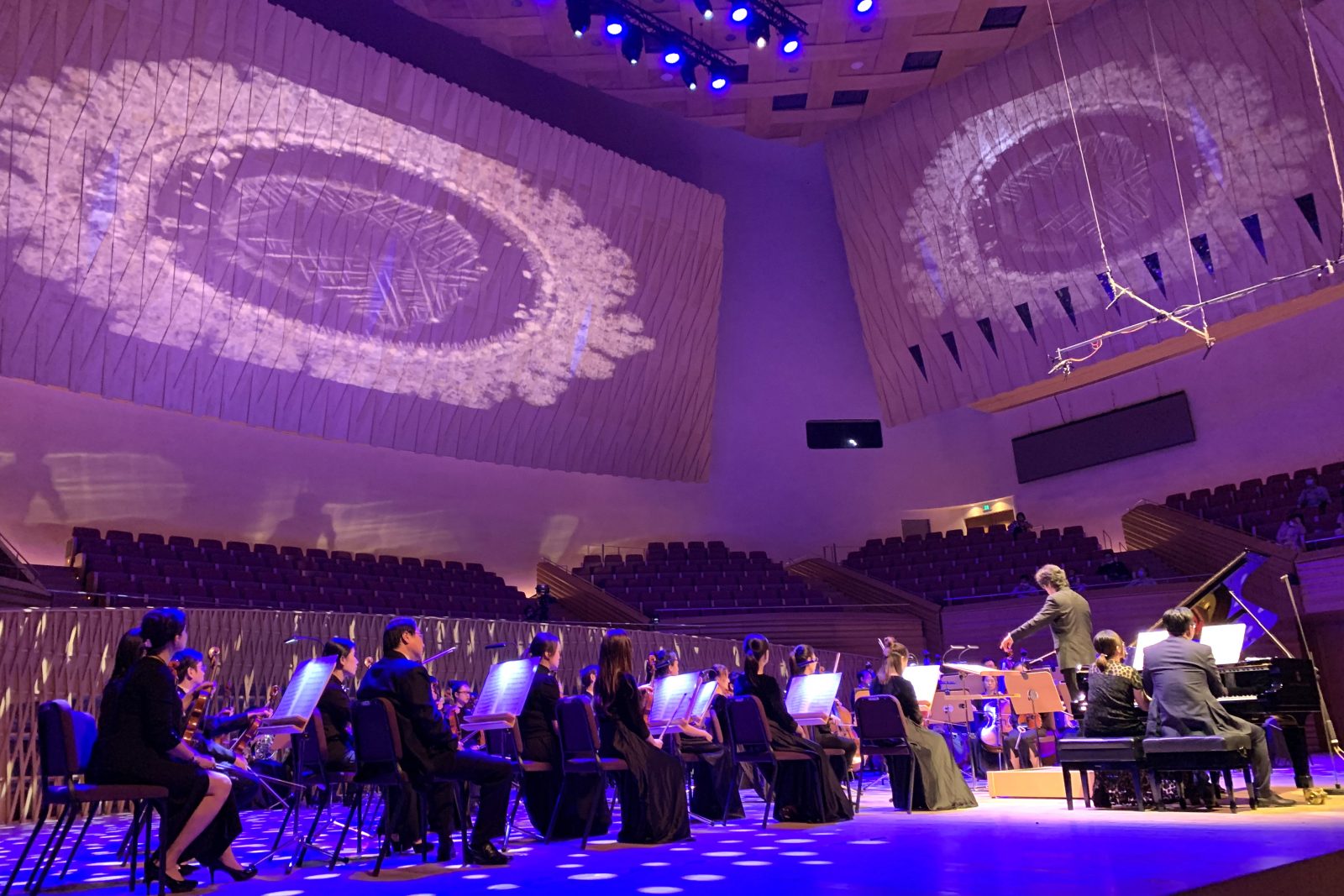
Recruiting hope
Mozart’s Lost Symphonies concert was held at Pfizer’s Management Trainee Program. Pfizer invited college students from all over China to attend, and the concert was able to recruit interest from medical students, and hope for the world.
More than 500 students from top universities had the opportunity to attend the concert in person.
In order to attract and allow more college students to enjoy the concert, cameras in different spots around the venue were placed to shoot and air videos on the spot. The videos were broadcasted live on official platforms, such as “Intern Monk” and Douyin Pfizer, reaching tens of thousands of viewers.
Also in attendance was Hong Zhiguang, a celebrity musician who is a member of the “Sound into the Heart” program, and a Doctor of Opera from Yale University.
Mozart’s Lost Symphonies garnered unexpected results. Not only was it able to recruit young medical talents , but it was also featured on various publications, such as Xinhuanet, CCTV, China Daily, and The Paper, as well as getting attention of those in the classical music industry.
Yuan Meng, Pfizer’s project leader, commented: “In my opinion, many domestic brands have long ignored the positive enhancement of brand value through corporate social responsibility. This concert has benefited not only Pfizer, but also the entire pharmaceutical industry. I I believe that in the future, more young people will regard the pharmaceutical industry as their first job goal.”
Credits
Agency: F5 Shanghai
Technology: Deansel
Technical Director: Teoman Salih Açıkgöz (Netherlands)
Music Consultant: Kurt Schmid (Austria)
Visual Effects : Beauty of Science
Performance: Shanghai Philharmonic Orchestra
Conductor: Zhao Xiaoou
Piano: Ge Hao, He Nannan
Venue: Shanghai Symphony Orchestra Concert Hall

